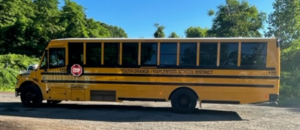I’m a bit confused by the PARCC editorial in today’s NJ Spotlight. Scott A. Oswald, superintendent of Collingswood and Oaklyn public schools, thinks that the PARCC tests themselves are reasonable assessments of student growth. But, while he expresses concerns about the process of administering PARCC tests because of the time and resources necessary to support the testing process, his main gripe is that they’re tainted by a “secrecy and security chokehold.” Oswald explains that this is not the fault of the N.J. Legislature, but the U.S. Congress.
He writes,
I suspect much of the criticism directed at PARCC testing is tied to the numerous purposes beyond the stated “improving instruction for kids” for which test results will be used. Are parents opposed to taking their child to the pediatrician for an annual medical checkup? If not, why would they be opposed to a quality assessment that offered a snapshot of individual student results upon which teachers can make instructional decisions? And, as a bonus, would anyone be opposed if schools used those same results to strengthen their instructional programs?
The real problem, I suspect, is that the PARCC testing process is grounded in secrecy and security. And, this requirement for secrecy and security stems not from our local school boards or even our elected or appointed state officials, but instead from a Washington bureaucracy that continues its vast overreach into our nation’s schools. From NCLB to ESEA to whatever Washington comes up with next, the regulations that result in the secrecy and security synonymous with high-stakes testing come to us courtesy of our elected members of congress and the senate.
In other words, he implies that current anti-PARCC campaigns by groups like NJEA and Save Our Schools-NJ (he doesn’t mention the lobbies by name) are misdirected, mistakenly focusing on state senators and assembly members (today, in fact, the N.J. Senate Education Committee will consider several opt-out bills pushed heavily by NJEA and SOS) while they should be directing their wrath at the U.S. Congress. Especially since, Oswald writes, facilitating PARCC refusals in N.J., as the new state bills under consideration do, would “almost certainly result in the loss of hundreds of millions in federal aid.”
That’s a fair point: a new ESEA (if we get there) will most likely maintain current federal requirements for annual standardized testing. N.J., then, is just implementing current and prospective federal law. So Mr. Oswald suggests that we continue to abide by federal law and administer the tests, but limit their application to “purposes of improving the teaching and learning process” and “measuring student growth and progress.” We’ll resolve the state PARCC debate and “depoliticize the process,” he writes, if we don’t use the tests to “rate teachers, close schools, and build an argument to privatize our public education system.”
That’s where he loses me. Does he really think that NJEA and SOS-NJ will just step back if someone points out the logic that their target should be the U.S. Congress, not Statehouse legislators, especially after they’ve dumped $15 million into local anti-PARCC campaigns? Does Oswald, clearly a thoughtful and clear-headed educational leader, really think that using 10% of student outcomes for a teacher evaluation has any impact on teacher job security if the other 90% of teacher evaluations confirm classroom effectiveness? Does he really think that PARCC results will “close schools” or “build an argument to privatize our public education system” when students in charter schools — and they’re public, not private — take PARCC tests too?
With that final bit, his high-road argument slips into the sloppy gutter of rhetorical garbage and paranoid conspiracy theories. But up until then, it was a pretty good editorial.


